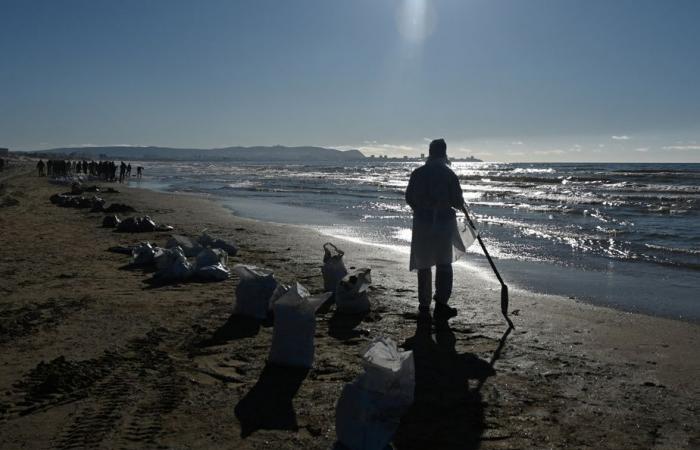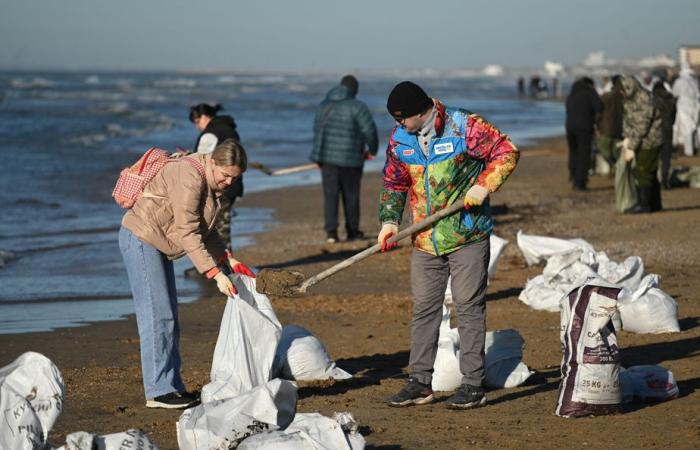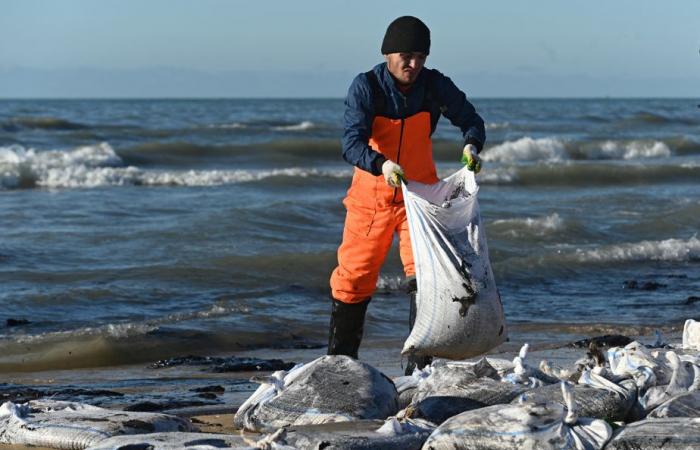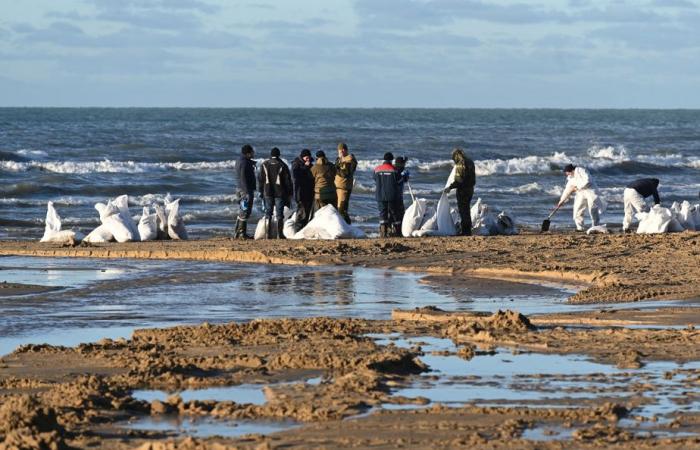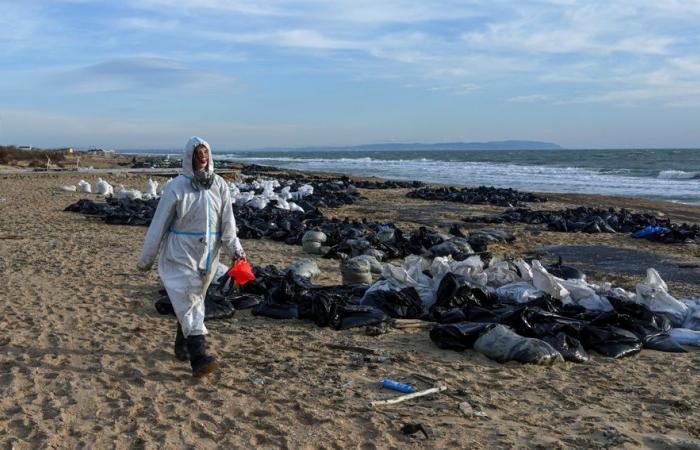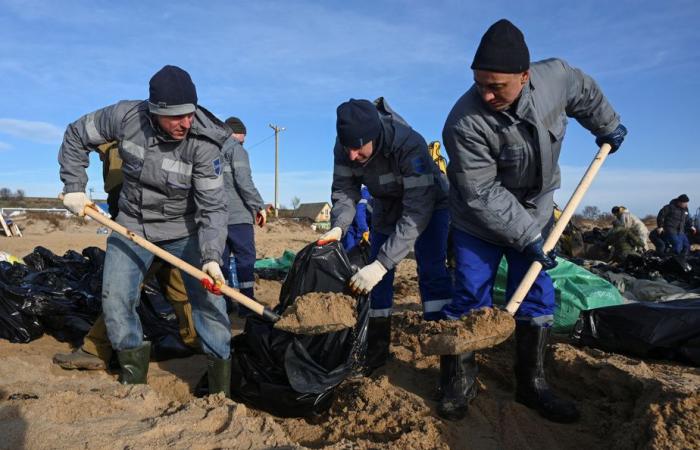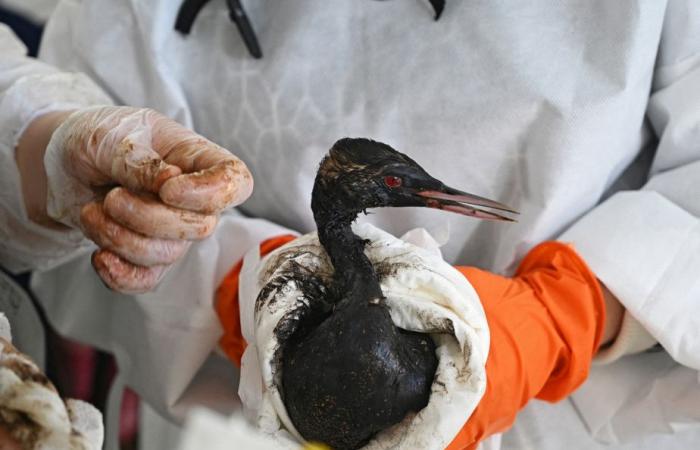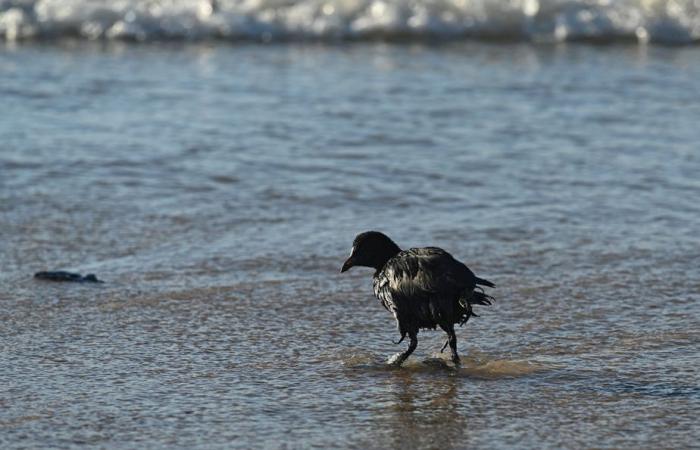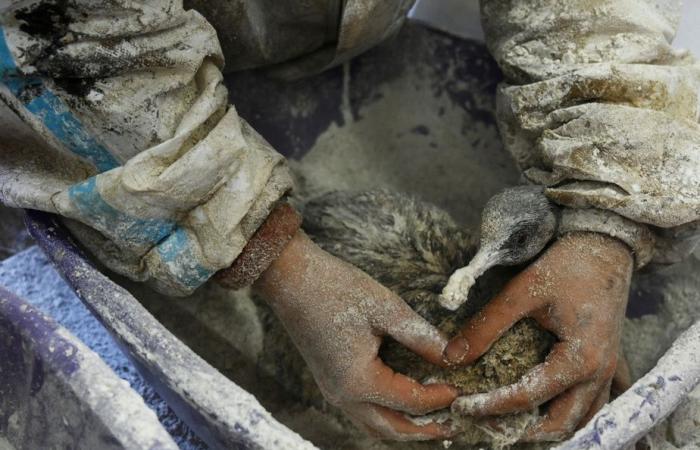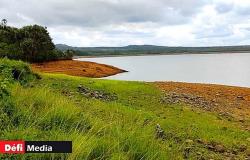(Moscow) More than 30 cetaceans were found dead at sea after the sinking of two oil tankers in the Black Sea in mid-December, a specialized NGO based in Sochi, in southwest Russia, announced on Sunday.
Posted at 11:20 a.m.
On December 15, two Russian tankers, the Volgoneft-212 and the Volgoneft-239ran aground during a storm in the Kerch Strait between Russia and the Ukrainian Crimean peninsula, annexed by Moscow in 2014. These ships were carrying 9,200 tonnes of fuel oil, around 40% of which could have spilled into the sea .
“We recorded 61 dead cetaceans, including 32 individuals who died after December 15, whose death is most likely linked to the oil spill,” lamented the Russian NGO Delpha on Telegram, referring to “a high” and “atypical” figure. .
“Almost every day we receive information about new deaths,” continued this organization specializing in the rescue of dolphins and other cetaceans along the Russian coasts in the Black Sea and their rehabilitation.
According to the NGO, according to which “the victims are mainly porpoises”, “judging by the state of the bodies, it is very probable that most of these cetaceans died during the first 10 days which followed disaster.”
“Pollution [de l’eau par le mazout déversé] is important,” she warned.
For around three weeks, authorities and volunteers have organized a large-scale clean-up operation, but the situation continues to cause concern.
-
PHOTO SERGEY PIVOVAROV, ARCHIVES REUTERS
A clean-up operation took place on December 20, 2024.
-
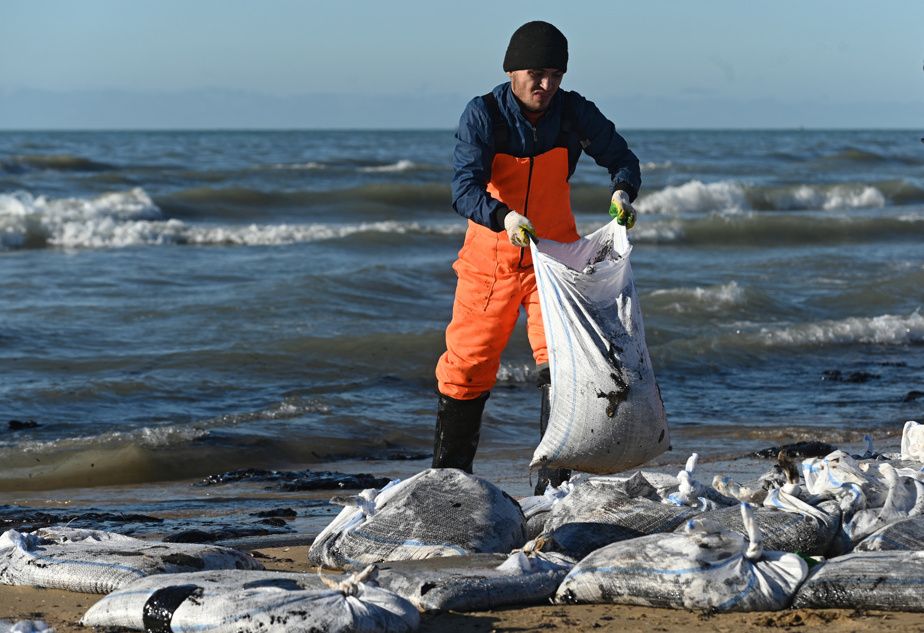
PHOTO SERGEY PIVOVAROV, ARCHIVES REUTERS
A clean-up operation took place on December 20, 2024.
-
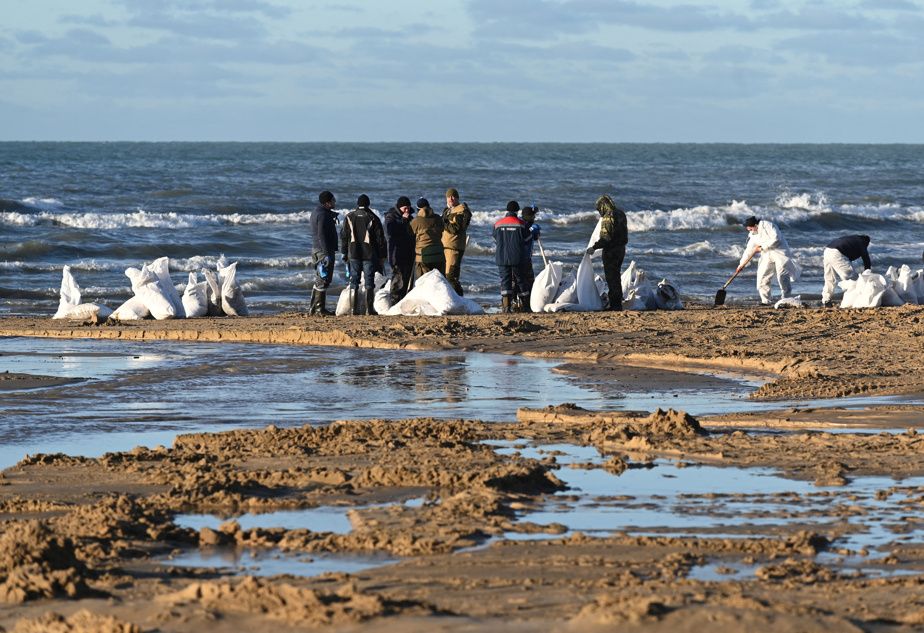
PHOTO SERGEY PIVOVAROV, ARCHIVES REUTERS
A clean-up operation took place on December 20, 2024.
-
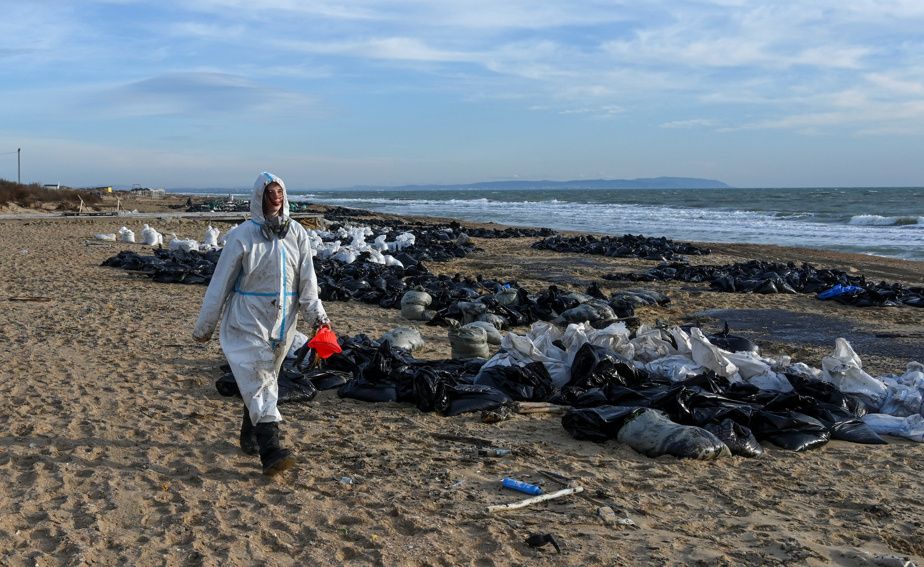
PHOTO SERGEY PIVOVAROV, ARCHIVES REUTERS
A clean-up operation took place on December 21, 2024.
-
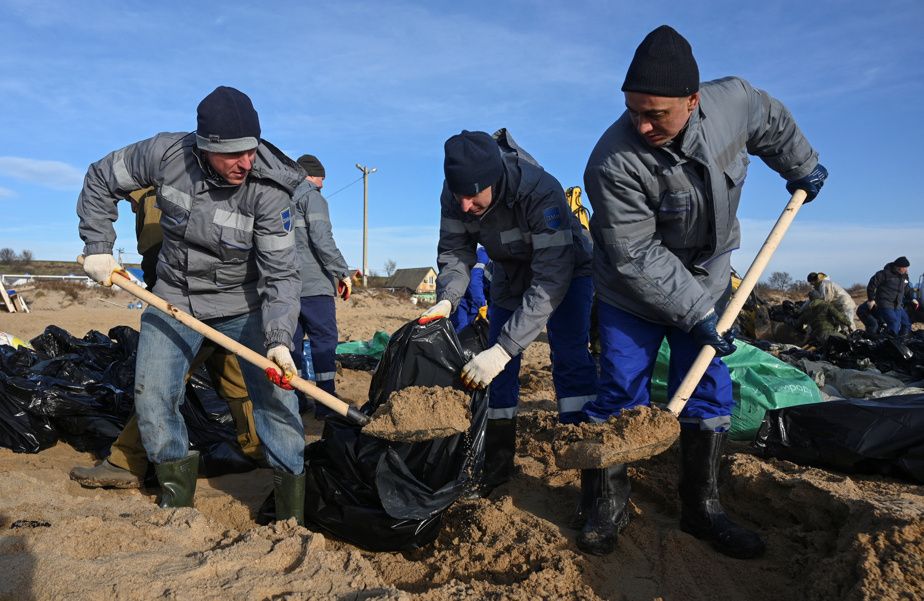
PHOTO SERGEY PIVOVAROV, ARCHIVES REUTERS
A clean-up operation took place on December 21, 2024.
1/5
More than 96,000 tonnes of contaminated sand have been removed from dozens of kilometers of beach on the Russian coast, but in total some 200,000 tonnes of soil may have been affected, according to Russian authorities.
“More than 68 kilometers of coastline have been cleaned,” the Russian Emergency Situations Ministry said on Sunday.
According to authorities, clean-up efforts are complicated by the fact that the type of oil spilled, heavy fuel oil grade M100, does not float on the surface of the water, but instead sinks to depth.
-

PHOTO SERGEY PIVOVAROV, ARCHIVES REUTERS
Volunteers clean a bird, December 20, 2024.
-
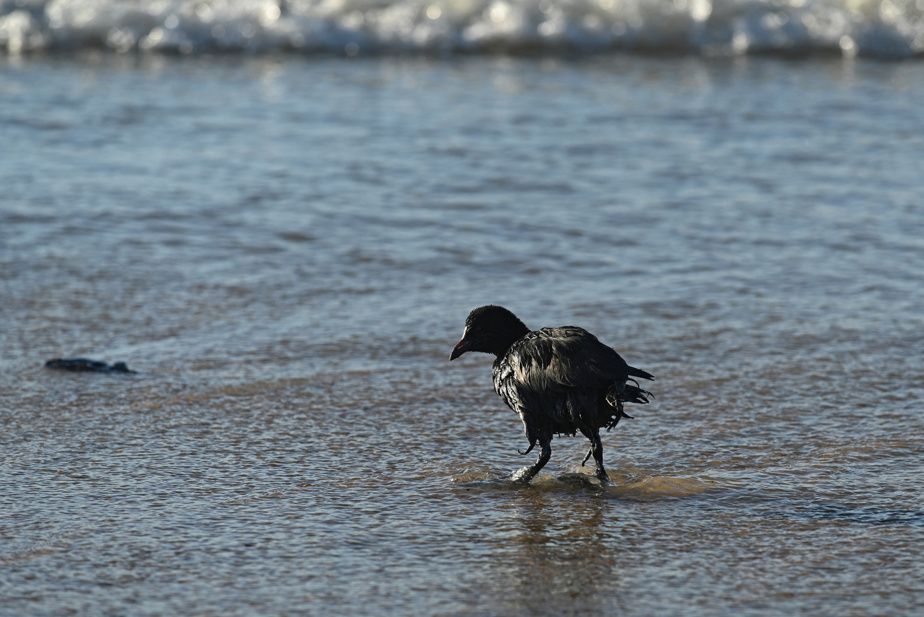
PHOTO SERGEY PIVOVAROV, ARCHIVES REUTERS
On December 20, 2024, a bird covered in oil walks along a beach following the oil spill.
-
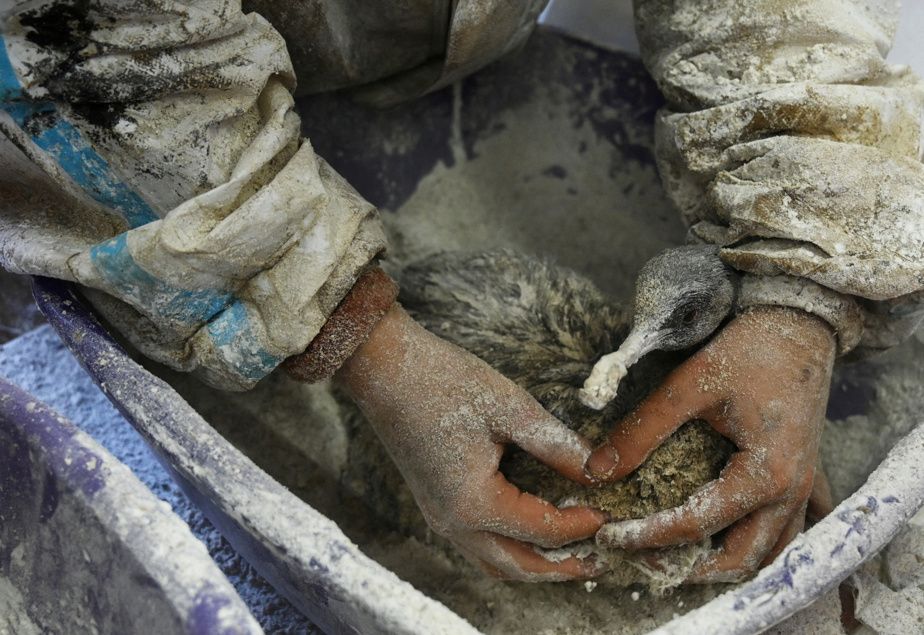
PHOTO SERGEY PIVOVAROV, ARCHIVES REUTERS
On December 20, 2024, a volunteer uses flour to clean a bird.
1/3

